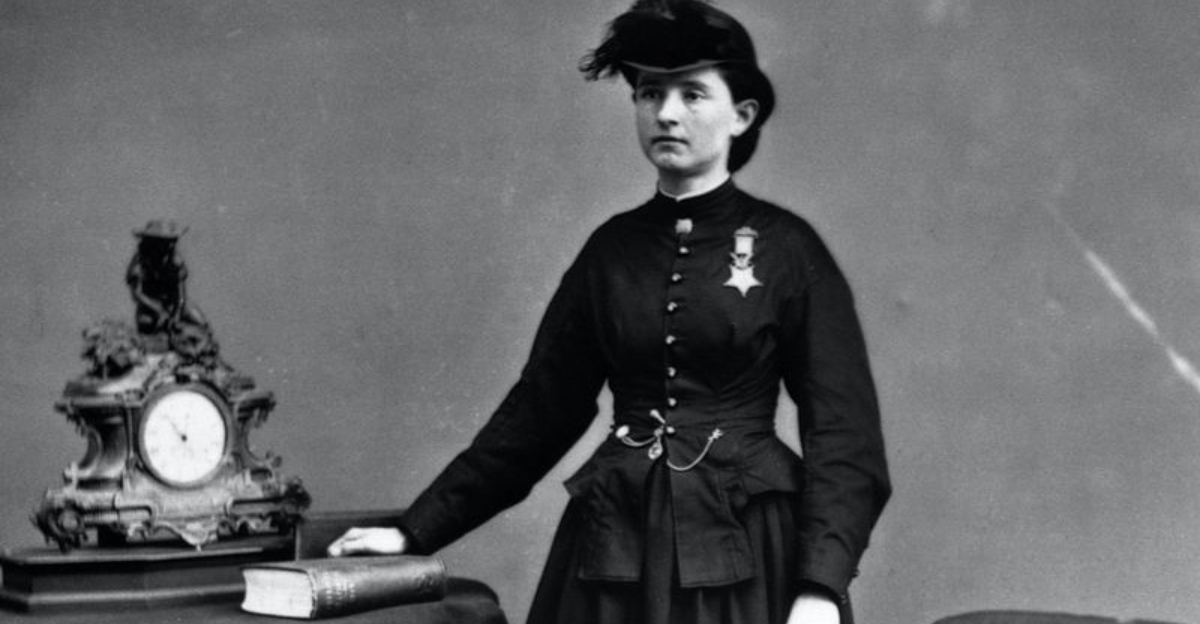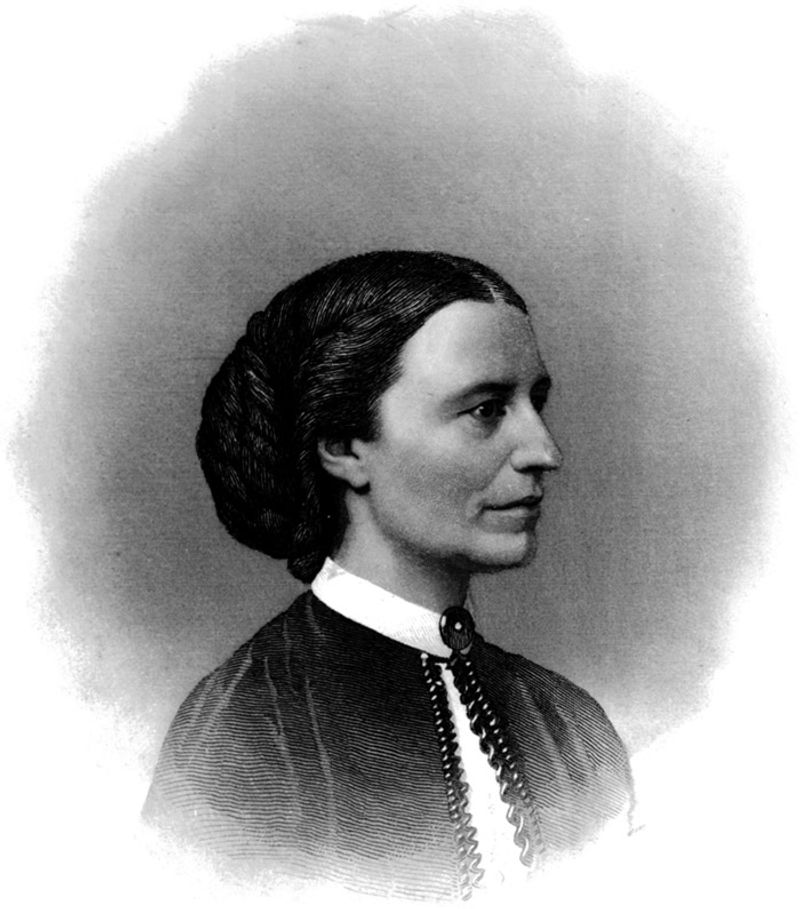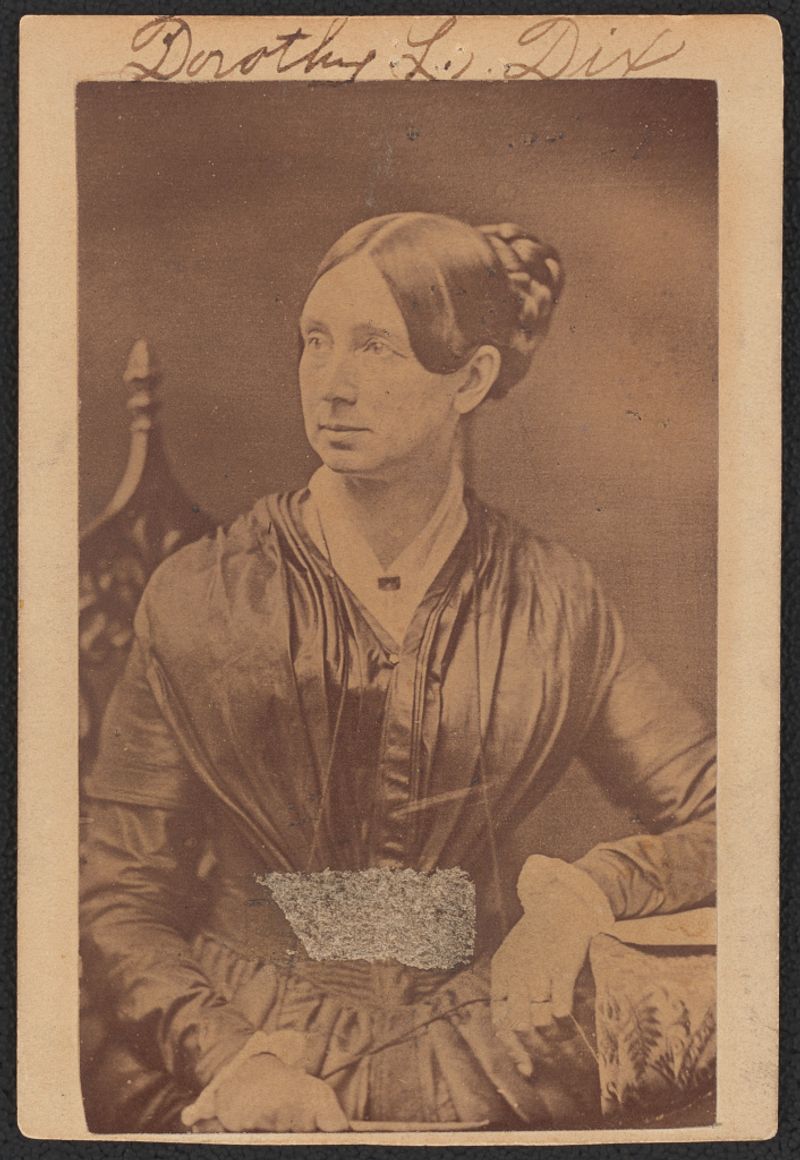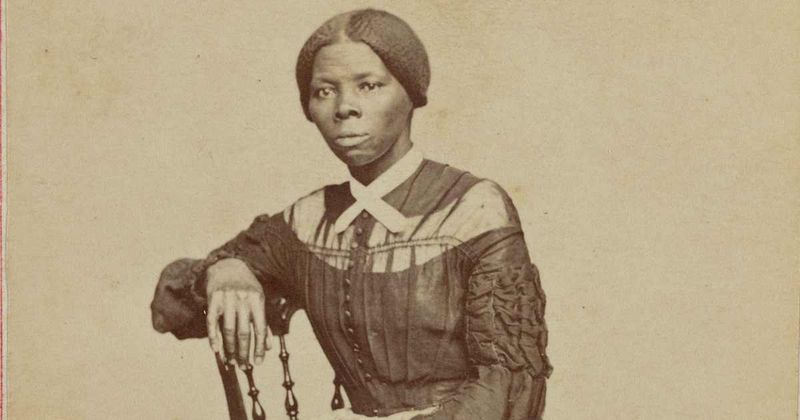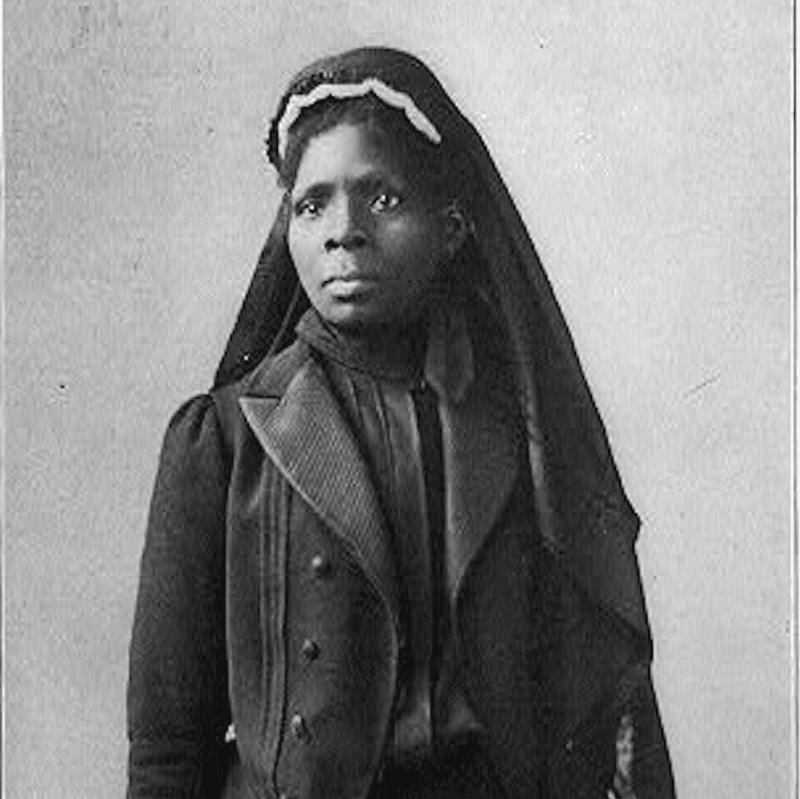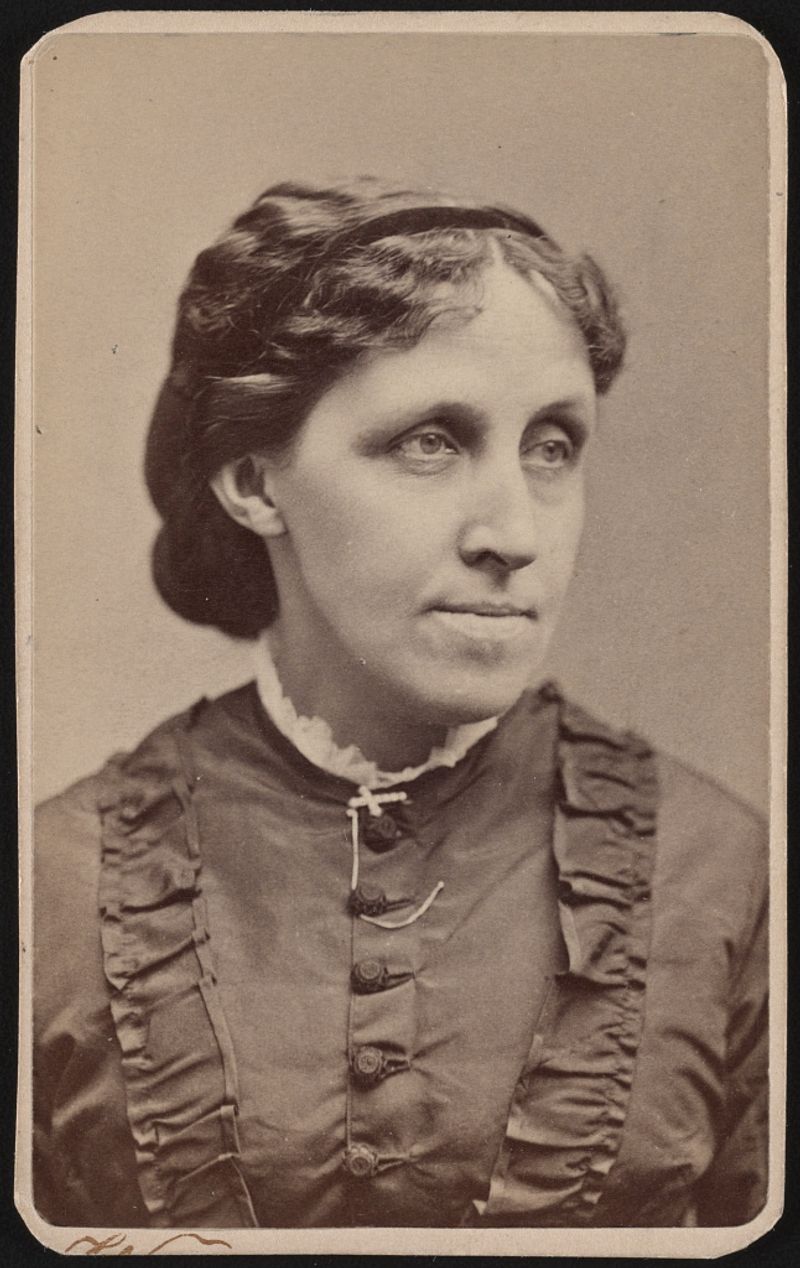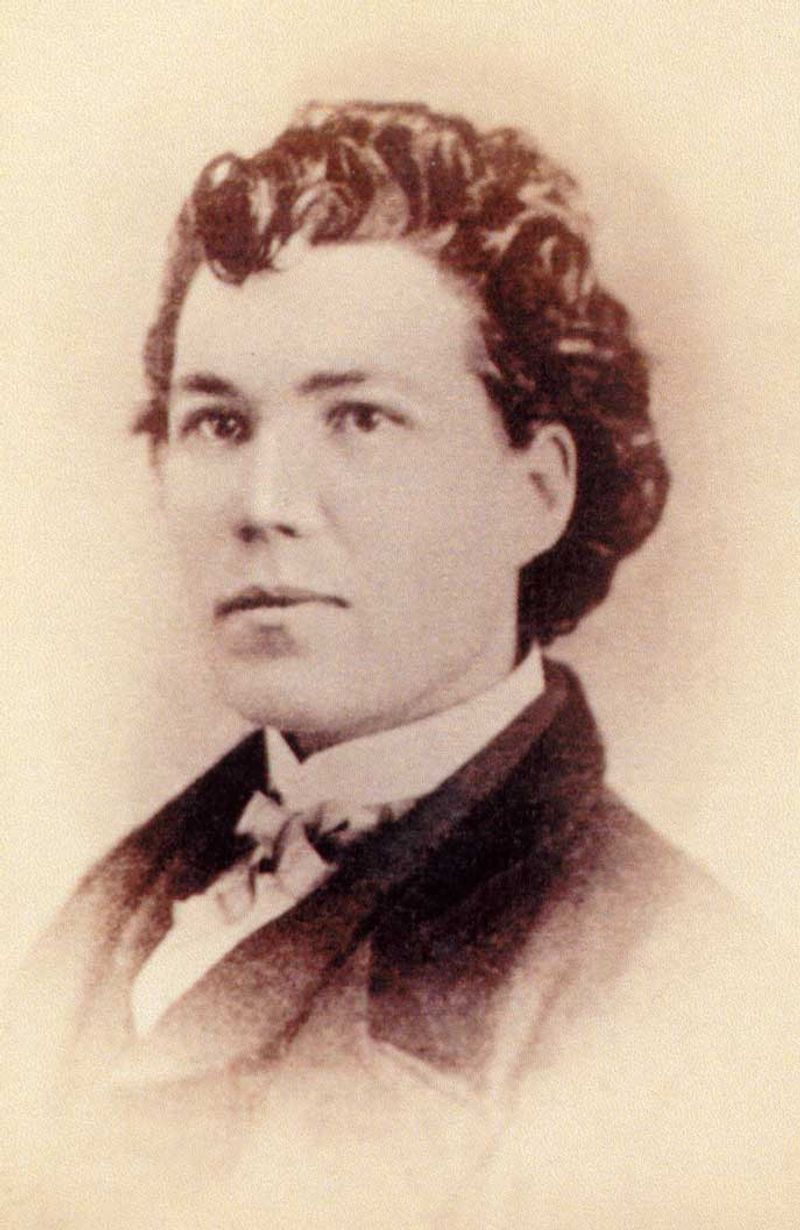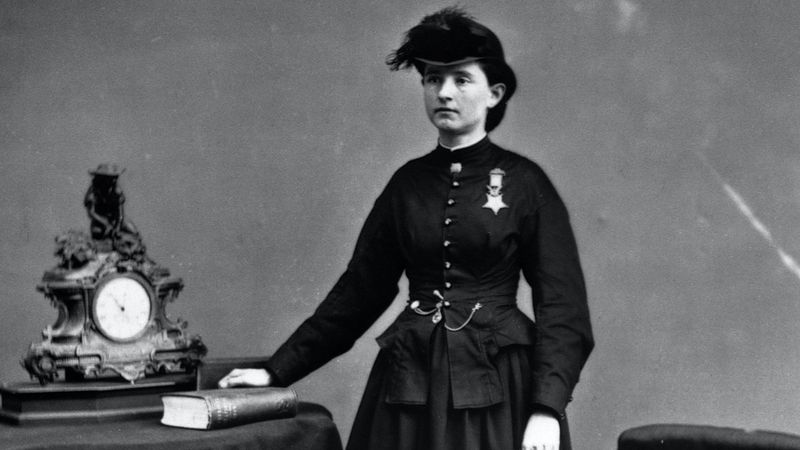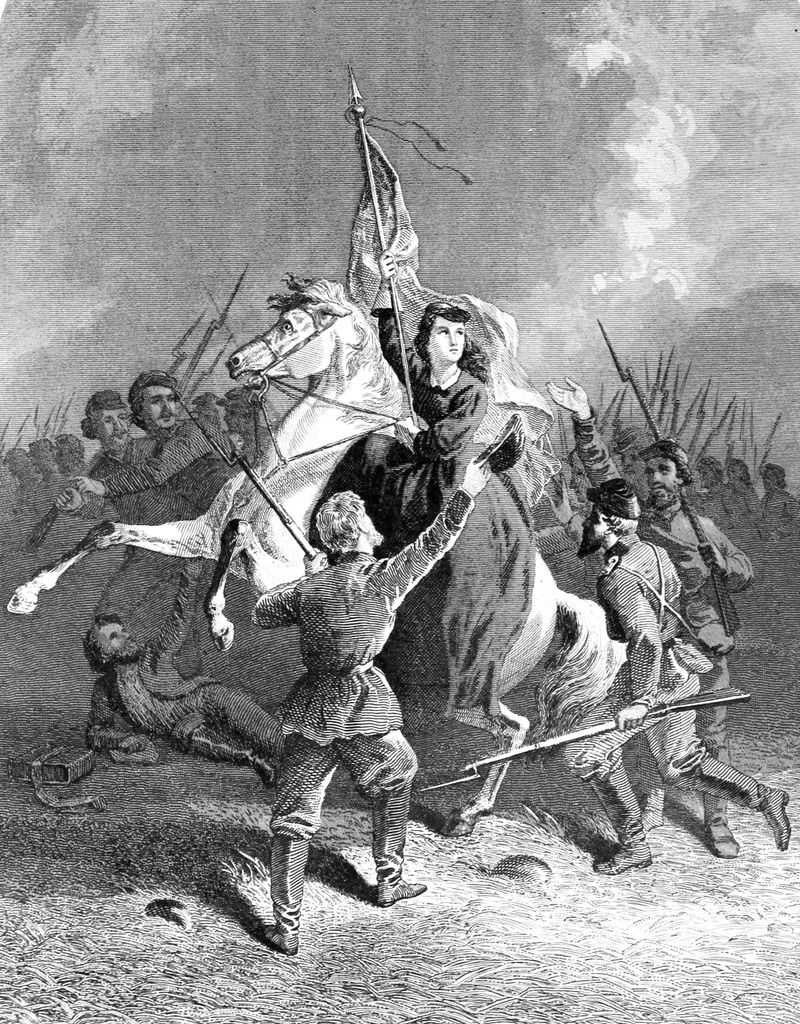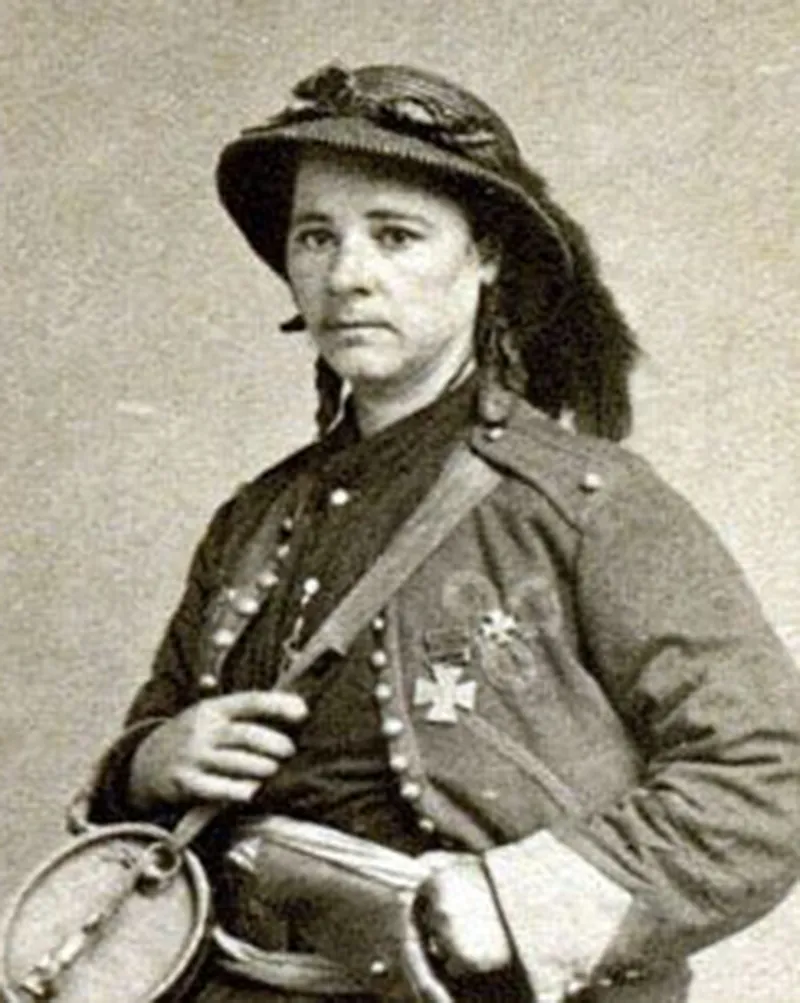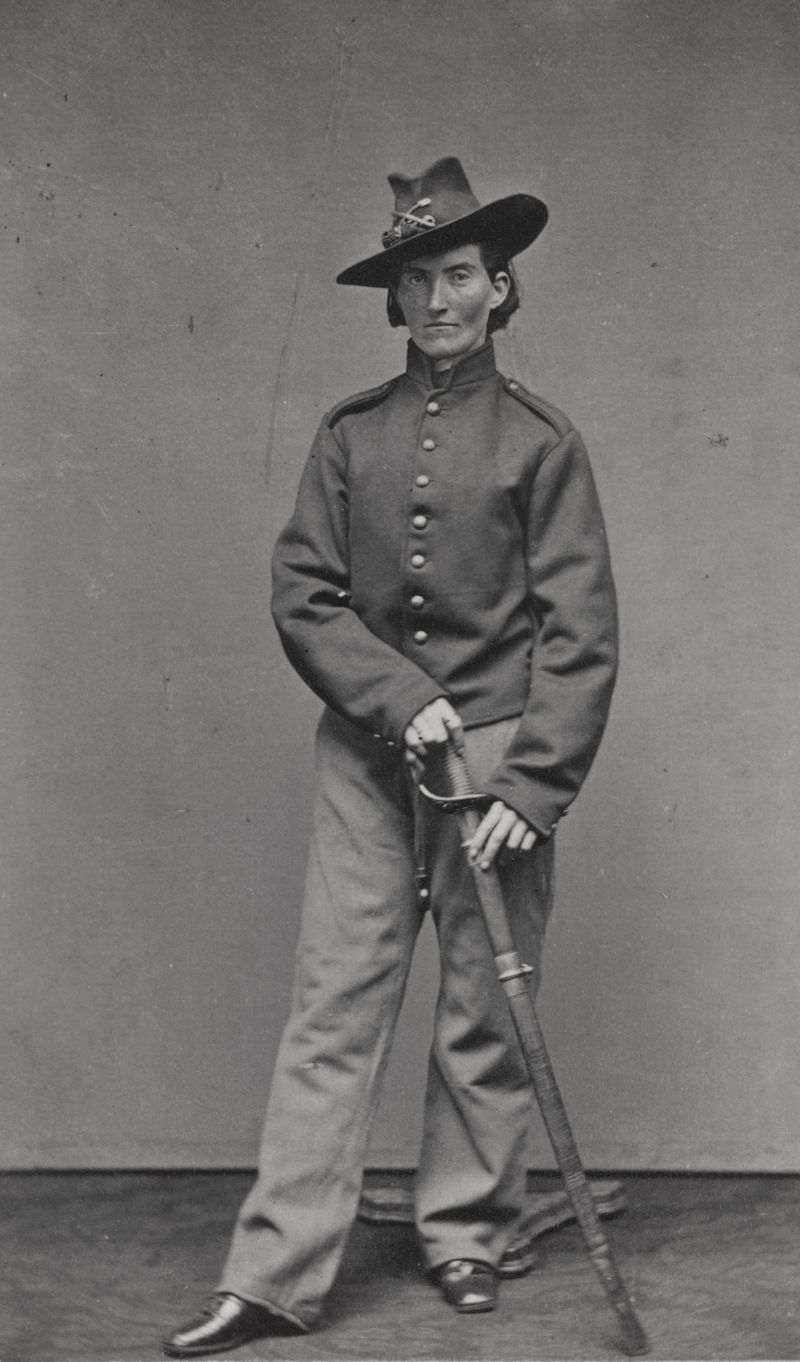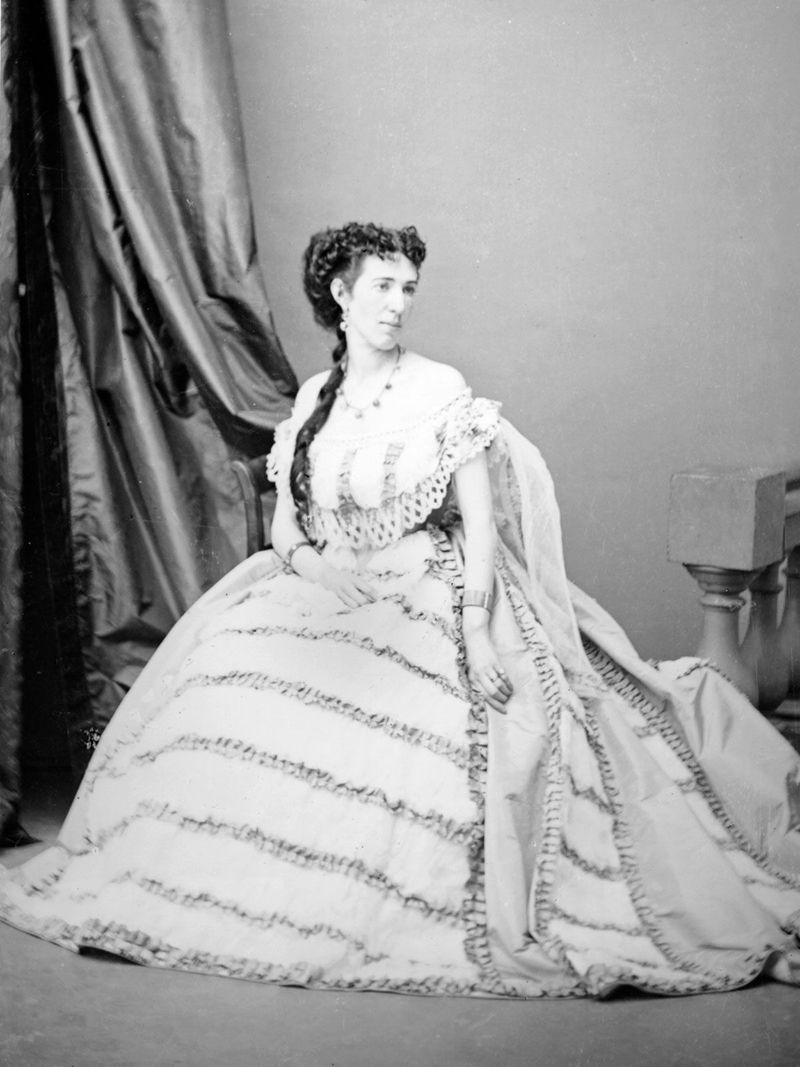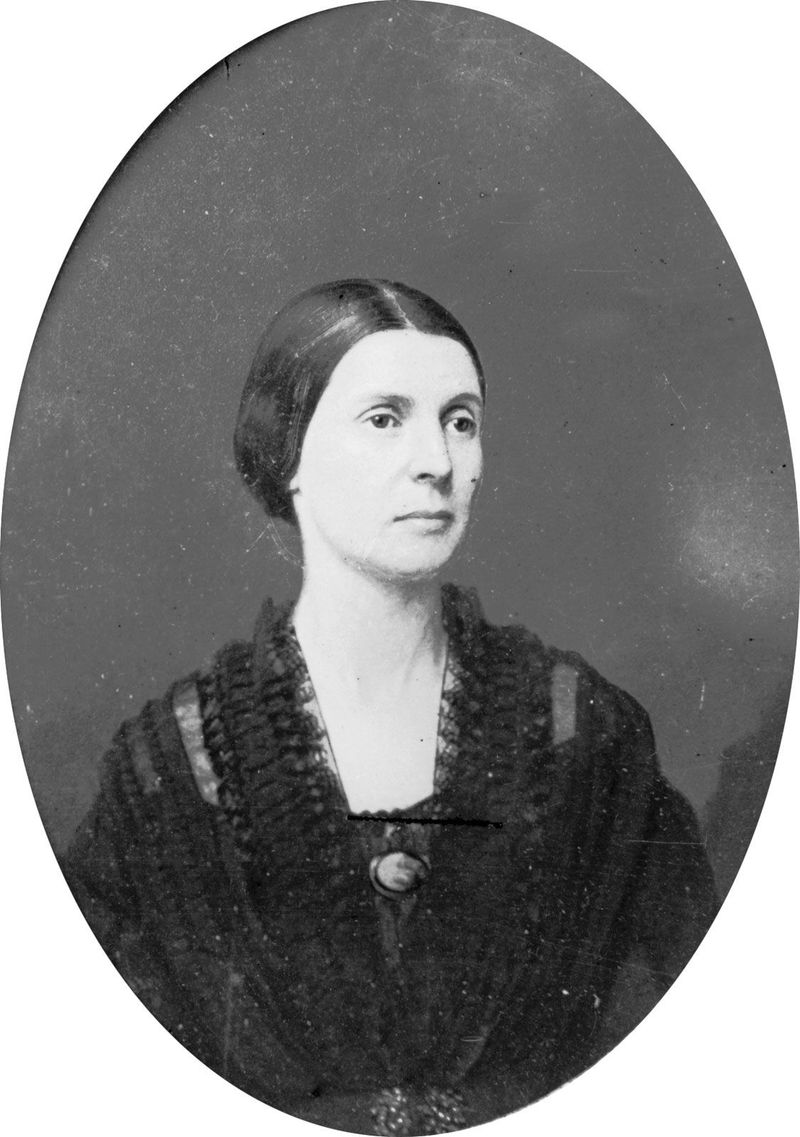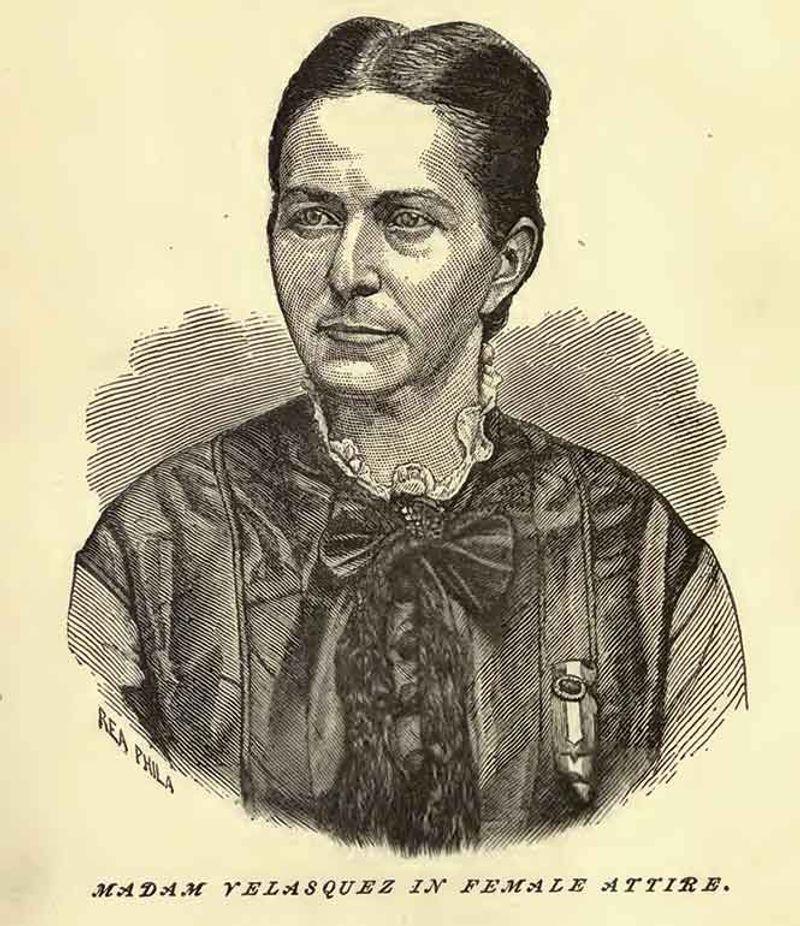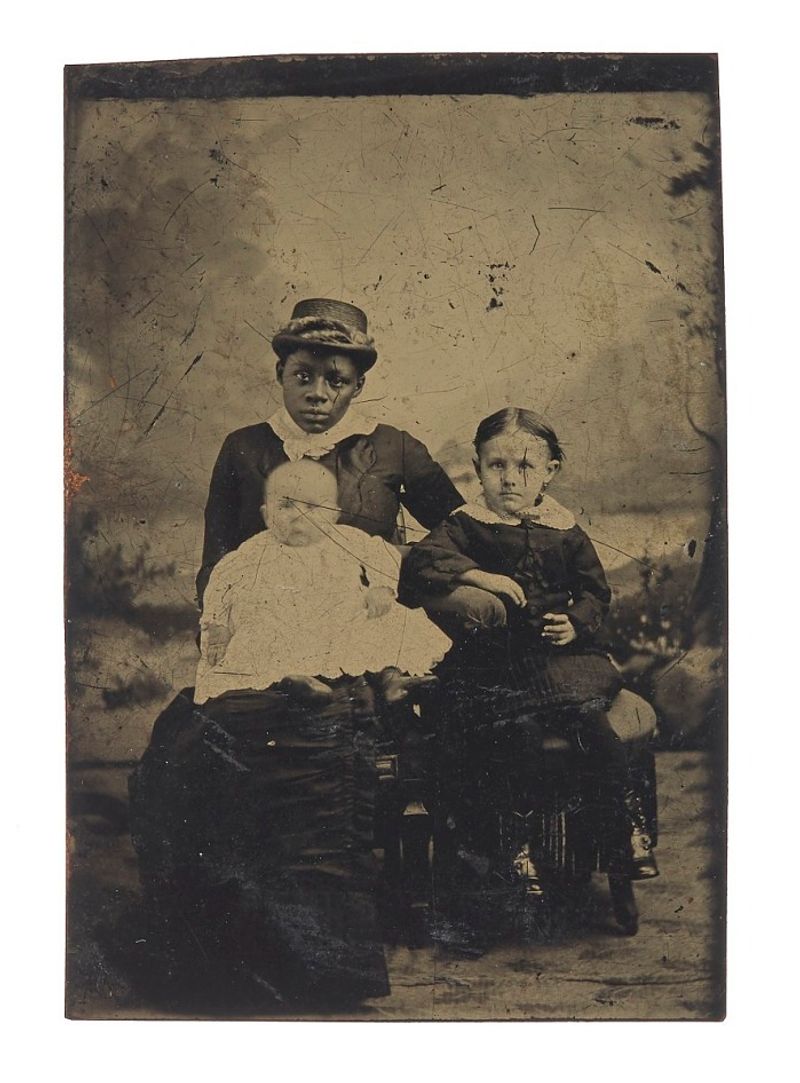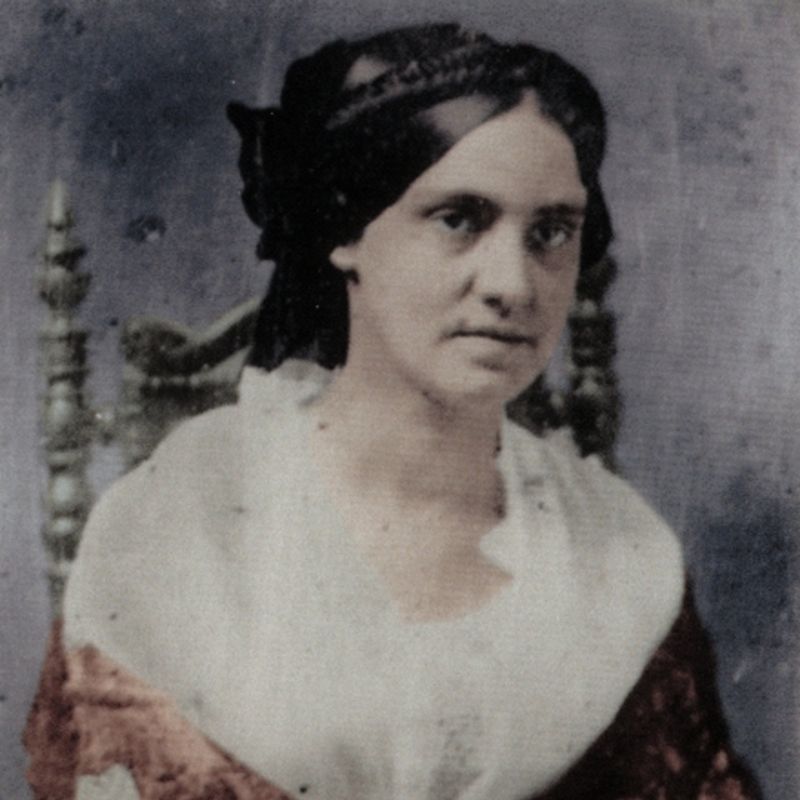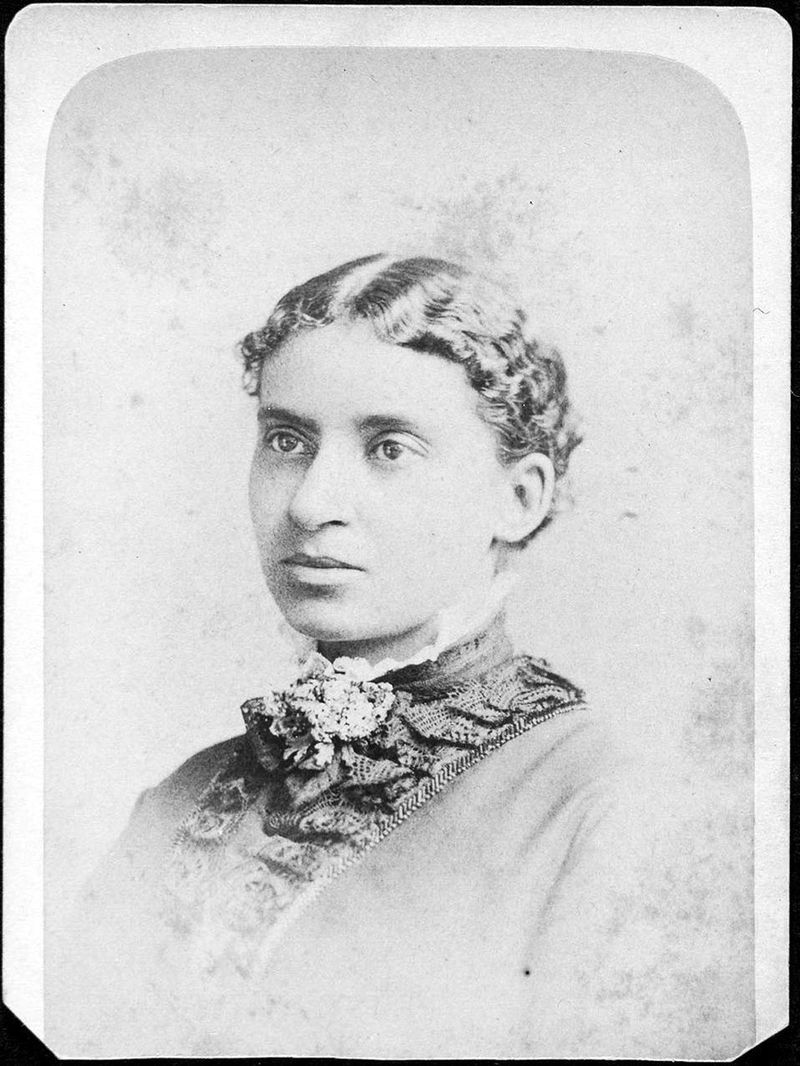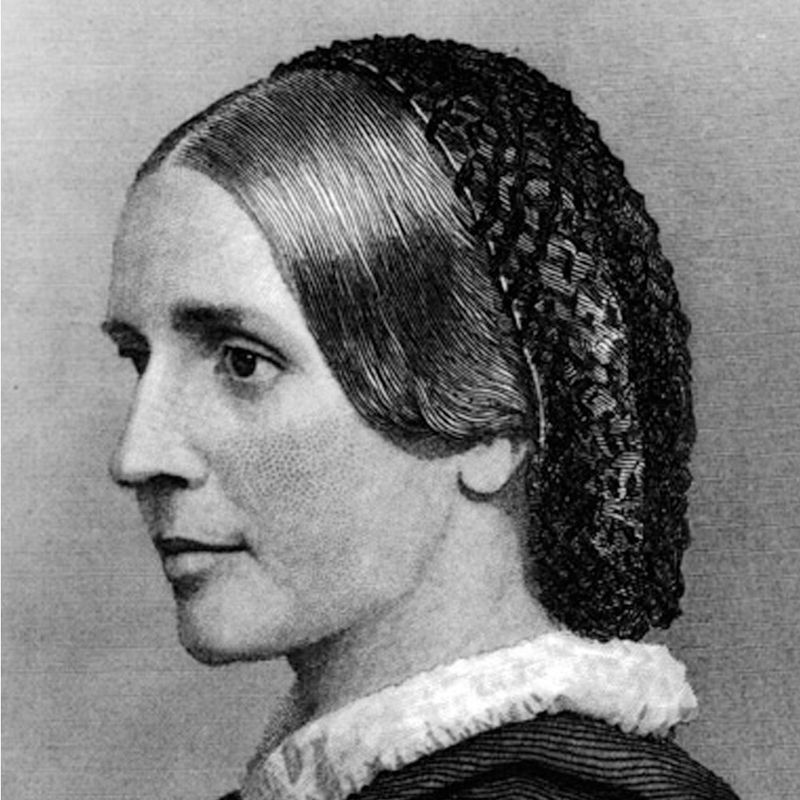The American Civil War was not just a battle between North and South, but also a stage where women played crucial roles, often going unrecognized. These women, through sheer bravery and determination, broke societal norms and contributed significantly to the war efforts.
Despite facing numerous challenges, they emerged as unsung heroes, many of whom were awarded medals, albeit some of which are largely forgotten today.
This article sheds light on 17 such remarkable women whose gallantry and service were acknowledged in various ways during and after the Civil War.
1. Clara Barton
Clara Barton, often called the “Angel of the Battlefield,” dedicated her life to humanitarian efforts. Founder of the American Red Cross, she served tirelessly on Civil War frontlines, providing critical care to soldiers. Her unwavering dedication earned her honorary commendations from various nations. Barton’s legacy as a pioneer in emergency response remains unmatched today. A lesser-known fact: she was instrumental in identifying thousands of missing soldiers, bringing closure to grieving families.
2. Dorothea Dix
Dorothea Dix revolutionized wartime medical care as Superintendent of Army Nurses, a role that saw her overseeing thousands of women nurses. Her strict yet compassionate leadership improved hospital conditions and care standards. Commended by Congress, Dix’s contributions were pivotal in setting the groundwork for future military nursing practices. A fascinating tidbit: she insisted on selecting her nurses, ensuring only the most dedicated were chosen, which significantly elevated care quality.
3. Harriet Tubman
Harriet Tubman, known for her bravery on the Underground Railroad, also served the Union as a spy and nurse. Her intelligence work was crucial, and she became the first woman to lead a U.S. military raid, the Combahee River Raid. Though officially unrecognized during her lifetime, her military pension and later honors reflect her invaluable service. Intriguingly, Tubman’s courage extended beyond the battlefield, as she continued to fight for civil rights until her death.
4. Susie King Taylor
Susie King Taylor holds the distinction of being the first Black Army nurse to serve openly in combat. Despite not receiving formal decorations, her contributions have been honored through tributes and monuments. A true pioneer, she also educated fellow soldiers in reading and writing. Her autobiography remains a rare firsthand account of a Black woman’s experience in the Civil War. Taylor’s legacy is celebrated for its dual focus on healthcare and education amid conflict.
5. Louisa May Alcott
Louisa May Alcott, best known for her literary works, also served as a nurse during the Civil War. Her experiences at Union Hospital in Georgetown inspired her to write “Hospital Sketches,” which shed light on the realities of war nursing. Though her service was brief due to illness, Alcott’s writings provided a vital perspective on wartime healthcare. An interesting note: despite her own health struggles, she continued to advocate for women’s rights throughout her life.
6. Sarah Emma Edmonds
Sarah Emma Edmonds, alias Franklin Thompson, defied gender norms by masquerading as a man to join the Union Army. Her audacity paid off as she served valiantly, eventually securing a military pension in 1886. Edmonds’ story of courage culminated in her induction into the Military Hall of Honor in 1992. Did you know? She abandoned her disguise only after contracting malaria, fearing her true identity would be discovered if treated in a military hospital.
7. Mary Edwards Walker
Mary Edwards Walker stands as a testament to courage in adversity. As the only woman to receive the Medal of Honor, she broke barriers as a surgeon, spy, and POW. Her indomitable spirit shone through her work on the frontlines, tending to wounded soldiers. In 1917, her medal was rescinded; however, justice prevailed when it was posthumously restored in 1977. Her legacy endures as a symbol of strength and perseverance. Did you know? Walker often wore men’s clothing, challenging gender norms of her time.
8. Annie Etheridge
Annie Etheridge’s bravery knew no bounds as she rode into battle to tend to the wounded, earning her the Kearny Cross for bravery. Her courage under fire became legendary, and she was often seen as a beacon of hope amidst chaos. Beyond her battlefield heroics, Etheridge’s compassionate nature left a lasting impact on those she aided. A fact to ponder: she continued her nursing duties post-war, dedicated to supporting veterans.
9. Kady Brownell
Kady Brownell, an emblem of valor, fought fiercely alongside her husband on the battlefield, a rare sight in the Civil War. Her gallantry earned her a commendation from the Union Army, acknowledging her contributions. Brownell’s story challenges the traditional narrative of women’s roles during the war. Interestingly, she often led regimental marches with her flag, inspiring troops with her unwavering resolve.
10. Frances Clayton
Frances Clayton took the bold step of disguising herself as a man, “Jack Williams,” to fight in the Civil War. Though not officially decorated, her legacy is preserved in military archives. Clayton’s story is one of determination and love, as she fought primarily to stay close to her enlisted husband. An intriguing aspect of her tale: she maintained her disguise even through some of the war’s bloodiest battles, showcasing her resilience and grit.
11. Belle Boyd
Belle Boyd, known for her daring espionage activities, served as a Confederate spy. Her intelligence work led to multiple Union defeats and earned her a place in Southern historical circles. Despite being imprisoned, Boyd’s determination never wavered, making her a celebrated figure in the Confederacy. A captivating detail: she began her career in espionage at just 17, using her charm and wit to gather crucial information.
12. Rose O’Neal Greenhow
Rose O’Neal Greenhow’s espionage skills made her a key asset to the Confederacy. Her efforts were so impactful that President Jefferson Davis personally honored her. Tragically, she died while smuggling gold for the Confederacy, yet her legend endures. A lesser-known twist: her intelligence operations were often conducted from her Washington D.C. home, under the noses of Union officials.
13. Loreta Janeta Velazquez
Loreta Janeta Velazquez, a controversial figure, claimed to have fought in disguise and spied for the South. Her story, filled with intrigue and skepticism, has been debated by historians. Despite this, her legacy was later embraced by Confederate groups. Curiously, Velazquez penned her own adventurous memoir, perpetuating her enigmatic reputation and adding to the lore of women in the Civil War.
14. Margaret “Maggie” Corbin Lawrence
Margaret “Maggie” Corbin Lawrence defied racial and gender norms by serving as a nurse, laundress, and cook for the Union Army. Though not formally recognized during her life, her contributions are celebrated by Black heritage groups and historians today. Lawrence’s efforts were a blend of nurturing care and culinary skills, providing comfort to many soldiers. A fascinating note: her story sheds light on the often-overlooked roles of Black women during the Civil War.
15. Phoebe Pember
Phoebe Pember, as chief matron at Chimborazo Hospital, oversaw the care of hundreds of Confederate soldiers. Her dedication to improving sanitary conditions and her medical acumen were credited with saving countless lives. Renowned for her leadership and compassion, Pember’s postwar honors solidify her place in history. An interesting tidbit: her writings provide a rare glimpse into the challenges faced by women in Civil War medical roles.
16. Charlotte Forten Grimké
Charlotte Forten Grimké’s work as an educator and nurse for freed slaves during the Civil War was groundbreaking. Her efforts were crucial in the Reconstruction-era push for education equality. Grimké’s eloquent writings and personal diaries offer an insightful commentary on the era’s struggles and triumphs. A noteworthy fact: she was among the first Northern African American teachers to work in the South, paving the way for future educators.
17. Emily Parsons
Emily Parsons served at multiple field hospitals, where her expertise and leadership were pivotal in managing wartime medical challenges. Her written commendations from top Union generals highlight her exceptional contributions. Parsons’ story is one of resilience and dedication. Interestingly, despite losing her sight in one eye, she remained undeterred, continuing her service with unwavering commitment.
